When little Neve Gayford is carried on to a flight to Wellington in the arms of her doting Prime Minister mum at the end of July, the eyes of the country will be watching how the country’s top political leader will handle the dual roles.
With the back-to-work countdown now on, Jacinda Ardern (37) and partner Clarke Gayford (40) are set to model a thoroughly modern parenting style in the highest office of the land, with dad taking on full-time caregiving duties while his partner resumes leadership of her coalition government.
The second-only elected world leader to give birth in modern times, Jacinda is acutely aware that the help and wisdom of friends and family will be vital in raising her surprise bundle of joy, acknowledging the importance of community when she welcomed Neve Te Aroha Ardern Gayford to “our village” on a social media post soon after her birth.
While nothing is yet set in stone, it’s expected Clarke and Neve will shadow first-time mum Jacinda in the coming months, allowing her to breastfeed and bond with her newborn daughter when Parliament is sitting.
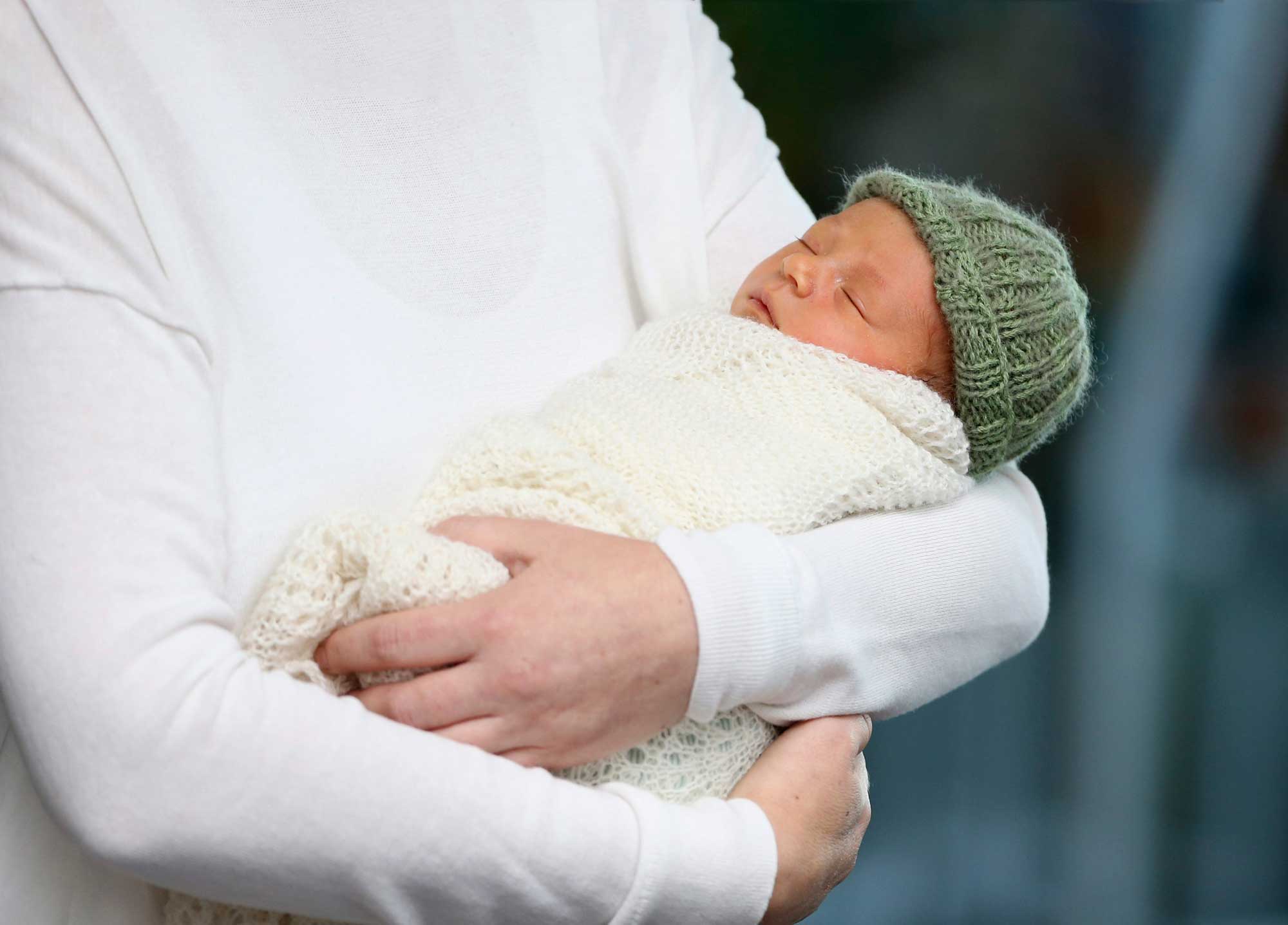
Having recently bought a four-bedroom home in the central Auckland suburb of Sandringham, the country’s First Family will be spending more time than ever in the Prime Minister’s official Wellington residence, Premier House, though a decision is yet to be made about where Neve will be sleeping in the stately home.
“There’s no room set aside in Premier House specifically for a nursery yet – the cot and baby-changing table are still in the lounge!” a parliamentary insider tells the Weekly. As the couple discover what suits their family best, working mums in high-profile roles in politics and business say a good support base is critical for success and happiness.
Mother-of-three and newly appointed British High Commissioner to New Zealand Laura Clarke tells the Weekly it’s about prioritising and leaning on a “tribe” for support.
“We had three children in quite quick succession and the advice our friends who had three babies in a year gave to us is, ‘You need to build a tribe.'”
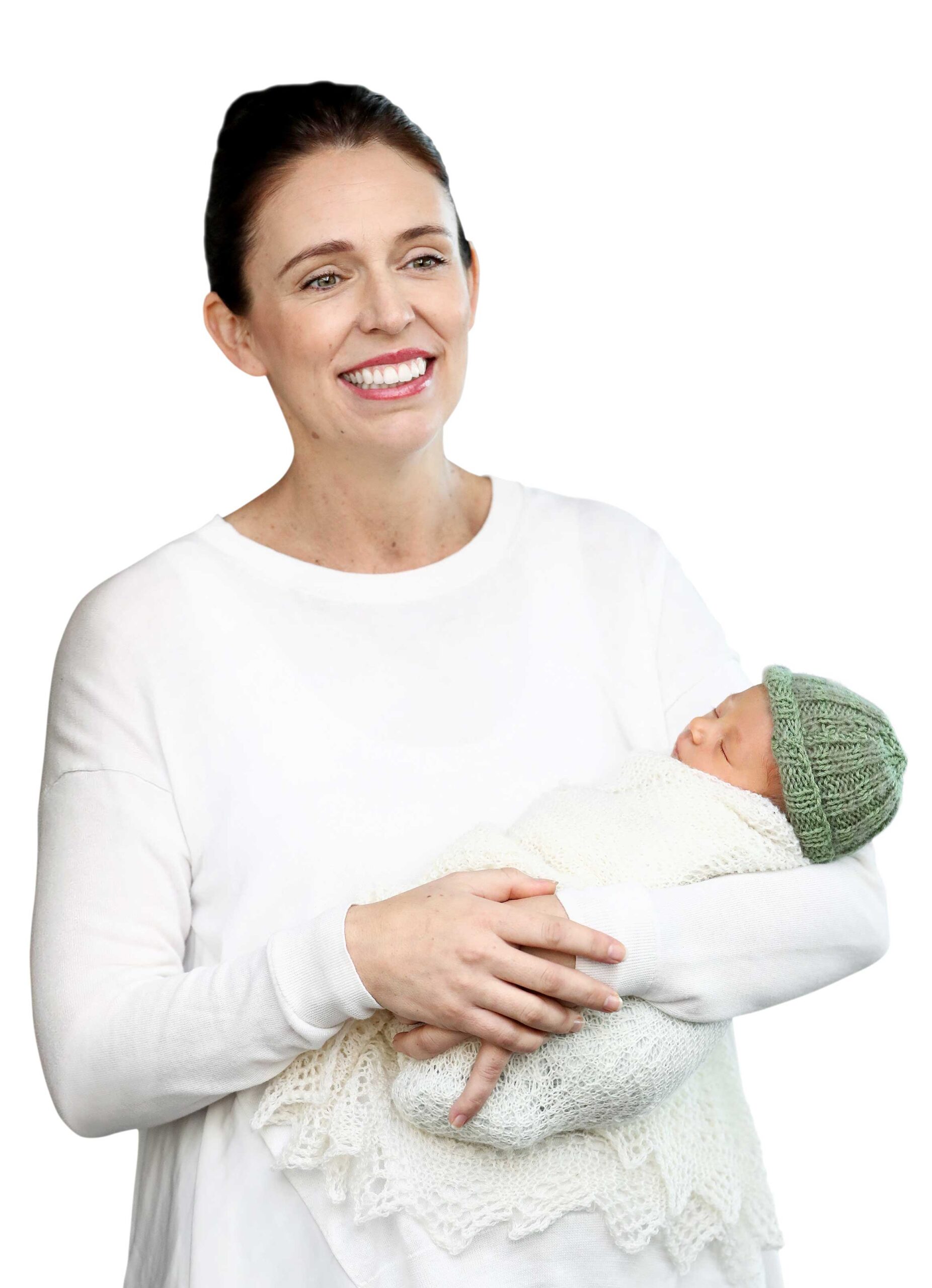
Prime Minister Jacinda Ardern with baby Neve.
It’s counsel the English foreign diplomat and her Kiwi lawyer husband Toby Fisher have followed since first relocating to South Africa in 2012 as a family of four, and more recently in the latest shift Down Under, with another child, after taking up a four-year post in February.
“So we’ve built a tribe. It’s me and my husband but we’ve also got a nanny, babysitters and my in-laws come down from Auckland to help.
“Parents can place an enormous amount of pressure on themselves to do everything. If they build a tribe – people that the kids love, whether that’s babysitters, friends, aunts, uncles and nannies – then everyone wins.
“I suppose it’s that term “it takes a village” and it really does. It strikes me that the Prime Minister and her partner have got exactly that intention. I’m absolutely sure they’re going to do a brilliant job and provide a really positive example for lots of people around the world.
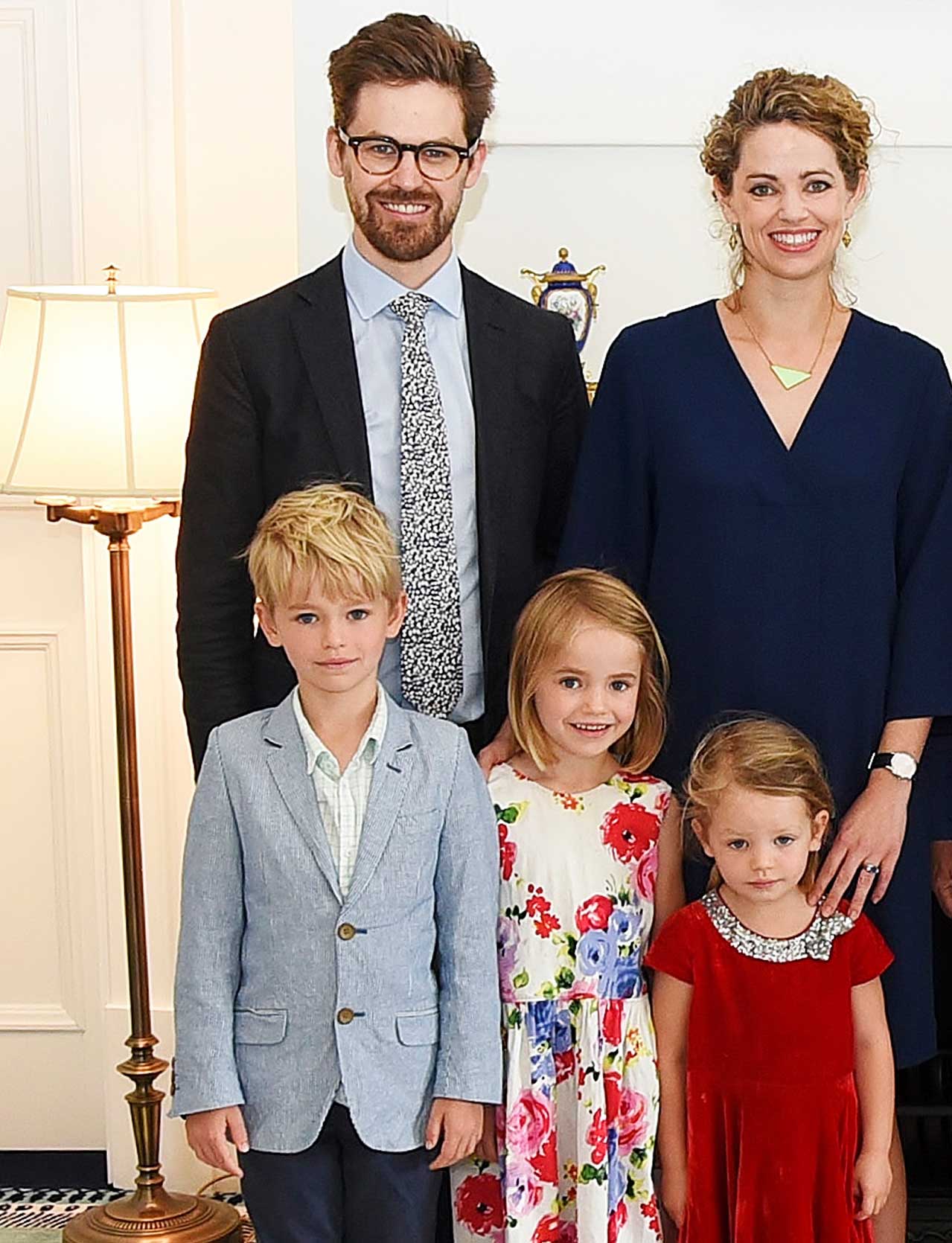
British High Commissioner Laura, husband Toby and children Blake (8), Nell (6) and Margot (4).
“They’re role modelling that you can arrange your life however it suits you best,” she adds.
And while, like Jacinda, there’s no time off in a diplomatic position, Laura credits wise advice from an old boss in London to help keep a good work-life balance in her demanding role.
“He said if you have to take a call between a work and family commitment, and that call is marginal, take the call in favour of family. I try and apply that.”
Striking a great balance between raising her family and succeeding in business is something My Food Bag co-owner Cecilia Robinson is also passionate about. As a mother of two young children, Thomas (6) and Leila (2), she has created a workplace template where a bridge of transparency connects home and work.
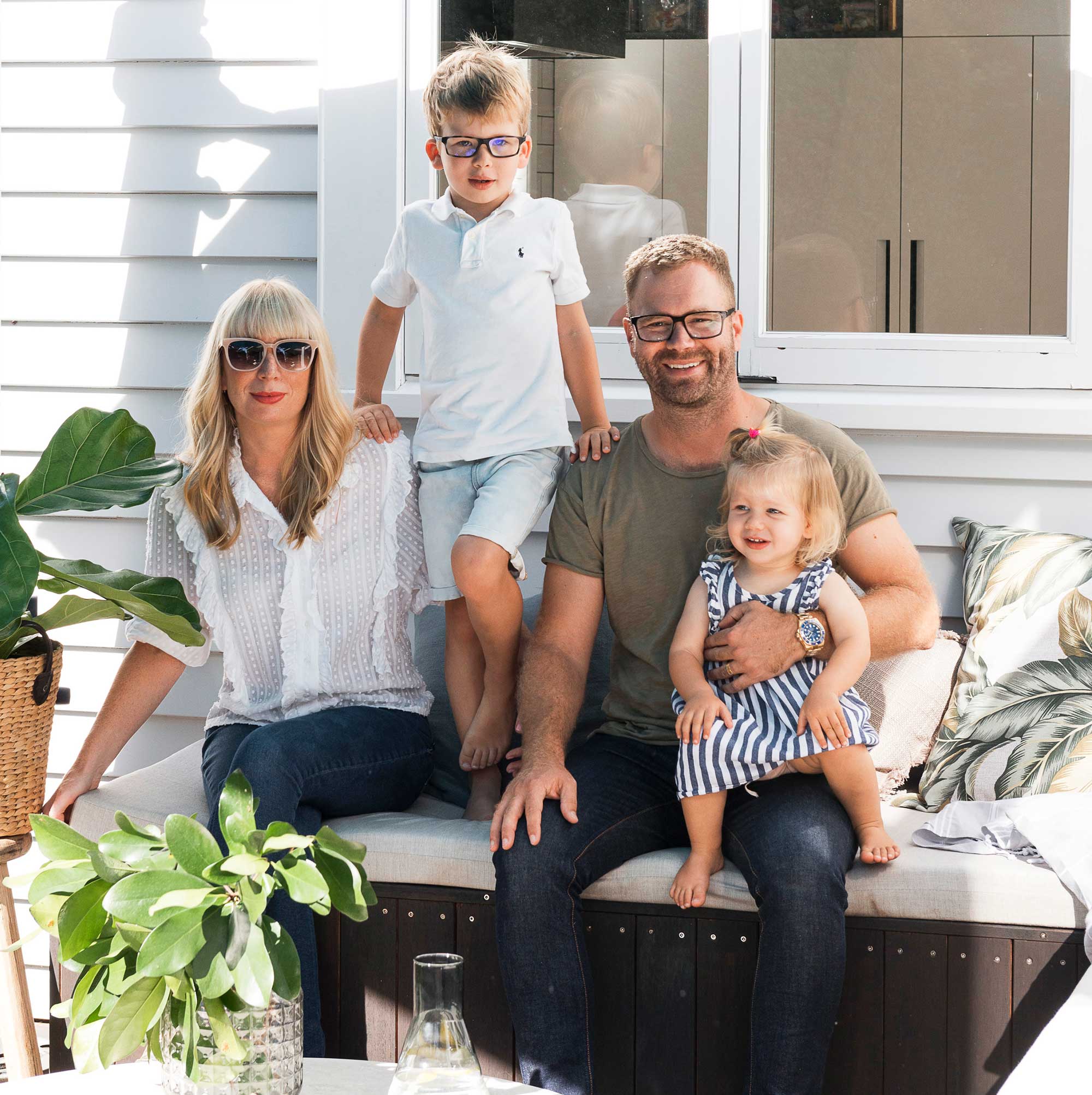
My Food Bag founders Cecilia and James with their children Thomas and Leila.
“For a long period, women with big corporate roles have had to set aside their family – they’ve had to focus on either one or the other. I wanted to lead from the front – integrating work and life to be happy on both sides, not just have a successful corporate career only to have your family suffer.”
That means Cecilia and husband James will leave work in the middle of the day to take their children to the doctor, go to school assembly on a Friday, or do the after-school pick-up together.
“I came into work today and our daughter’s been sick,” says Cecelia.
“I’ve probably had one night’s worth of sleep over the past three days, so you bring it to work, but you’re transparent about it. Whether it’s asking for another cup of coffee and telling others you’ve had a rough night, I think being open gives people the ability to be able to relate to the fact you’re not a robot and you’ve got these things going on in your life as well.
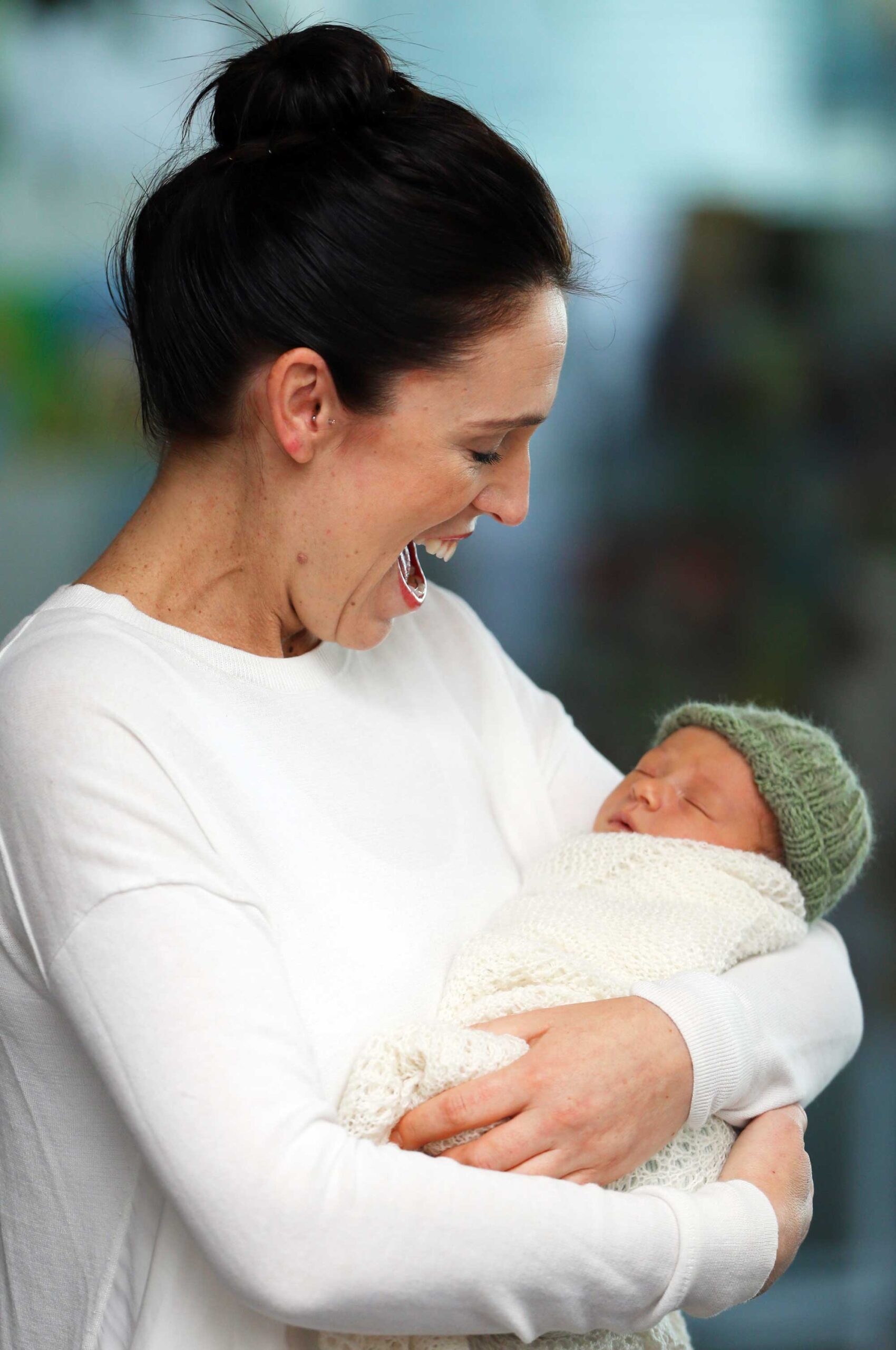
“That relatability factor as a leader and a boss, you just can’t underestimate that,” noting the way that Jacinda and Clarke have introduced little Neve to New Zealand is “so relatable”.
For Cecilia, communication has meant even the darkest times were shared with those at work, including the pain of miscarriage and stillbirth.
“It’s very visible to your staff when you are a boss and pregnant, and you go through something as heartbreaking as that. You have to share it with everyone,” nods Cecilia, who spent 80 weeks pregnant over a three-year span.
“Being open and honest when you’re going through those challenges is such an important part of leadership because it gives people the ability to talk about their challenges.”
But being the boss also brings additional pressures, she admits, noting the Prime Minister will be constantly on duty.
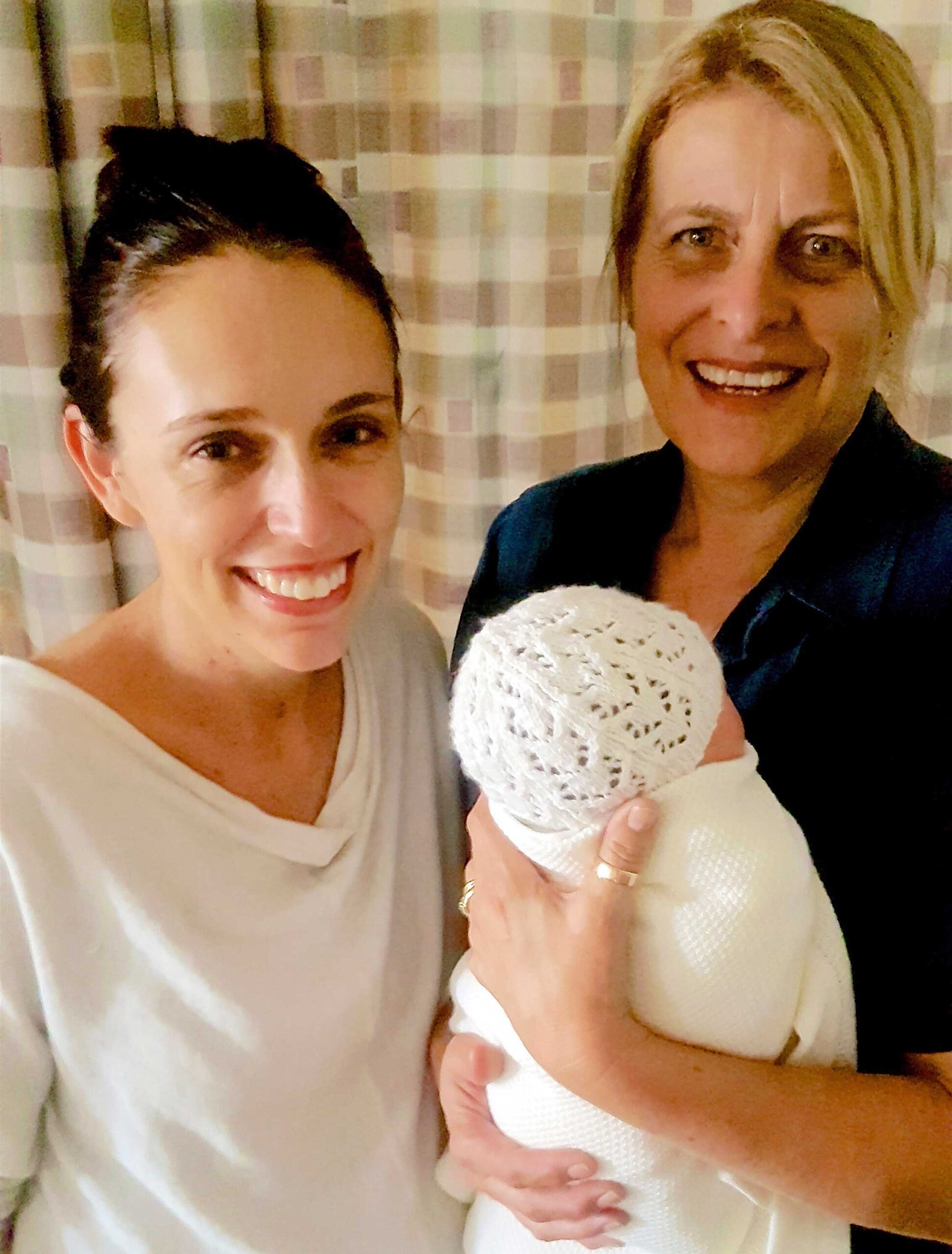
“It’s not easy and it’s going to be really hard for Jacinda because it’s going to be never ending. There are going to be times when little Neve is sick and all she wants to do is be there for her little girl, and there’s a choice that has to be made.”
The trailblazing executive, who finished the My Food Bag business plan four hours before going into labour with her son, hopes Jacinda will accept help when she needs it.
“We’ve loved having nannies and au pairs in our children’s lives because it’s enriched them and given them other people they can love and cherish.
“I’d also say enjoy the moment. Those days, while in the moment you feel like they are lasting forever. You’re struggling with croup, urinary infections and rashes, and then you’re managing a big workload. It’s just such a small part of your life and you don’t realise how quickly it goes, and you miss it when it’s not there any more.”
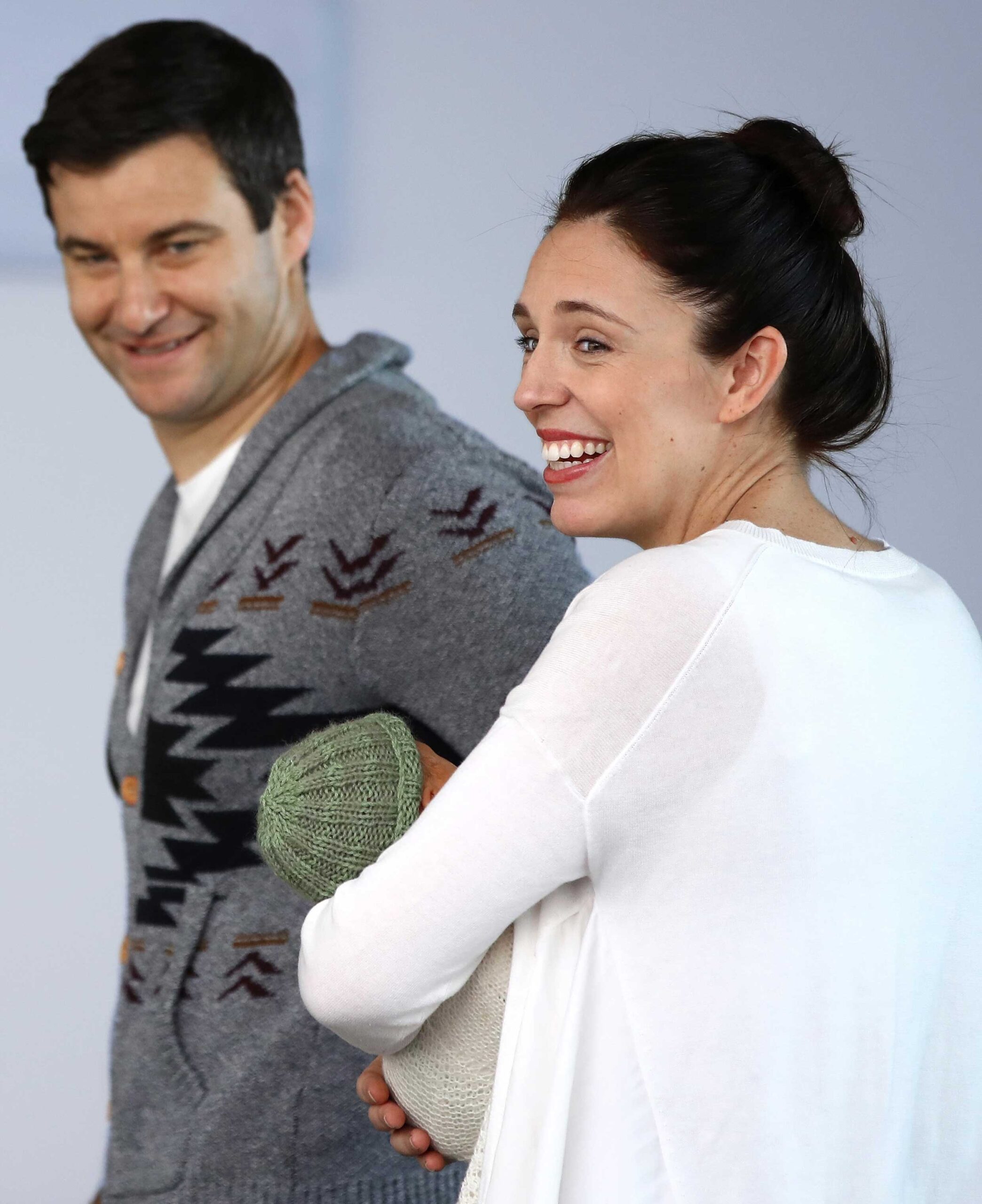
One politician with insight into how Jacinda may handle the dual role says it comes down to family support – and not trying to be Superwoman.
East Coast Labour’s Kiri Allan (34) entered Parliament last year with newborn Hiwa-i-te-rangi.
“You make it work with very good family support – that’s been a key for us,” explains Kiri, who travelled weekly to Wellington with baby and wife Natalie Coates (32).
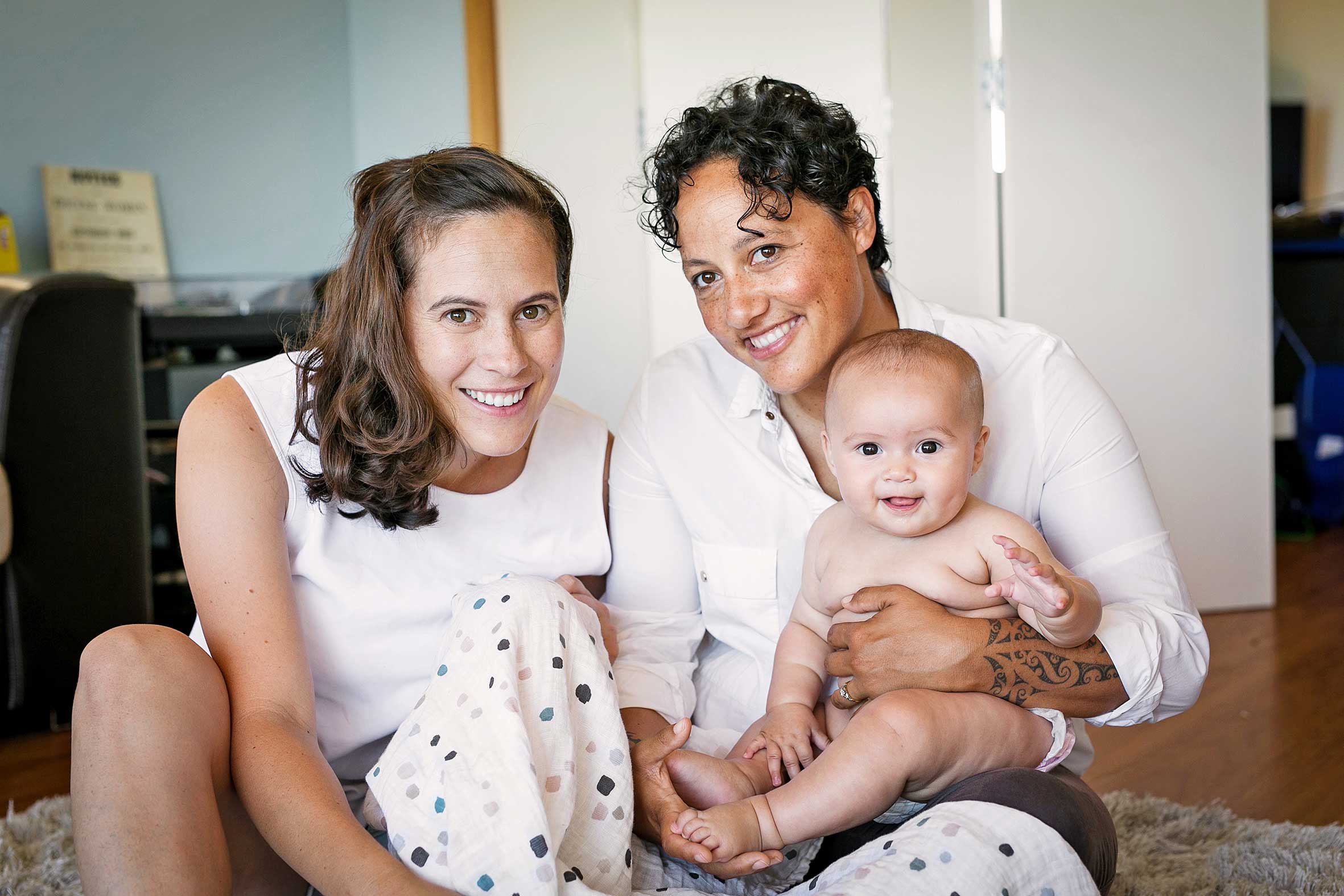
Labour MP Kiri, her wife Natalie and Hiwa-i-te-rangi.
“You go easy on yourself and you find your rhythm as a family unit.”
With Parliament increasingly adopting family-friendly measures, Kiri says there’s a room near the debating chamber where Jacinda’s little daughter will likely spend as much time in as her mum’s ninth-floor Beehive office.
“There is a whanau room that is right by the chamber. The room is set up with toys, a changing table, a couple of cots and it’s even got a TV so you can keep an eye on what’s happening in the House.”
And Kiri reveals Jacinda and Clarke are likely to enjoy a special camaraderie between other parents in the country’s most powerful creche.
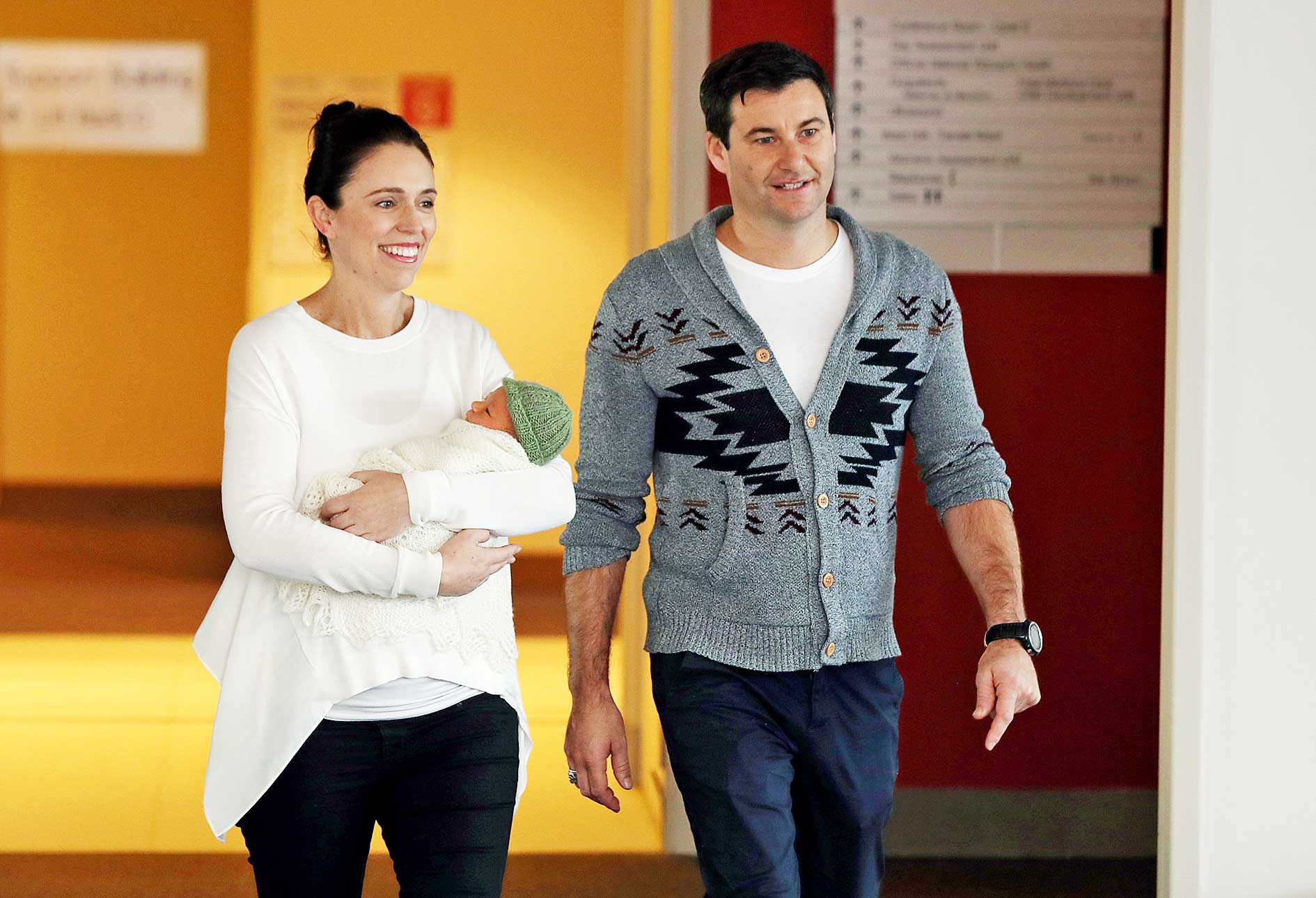
“Regardless of where we sit on the political spectrum, I think the one thing we can all connect on is being parents. There’s a lot of respect and a few giggles as we give each other’s kids a little kiss and a cuddle.”
While she’s loathe to offer any advice to her boss, she says Jacinda and Clarke are proving to be an inspiration.
“They are setting an example for all young men, women and children to look to as role models – and for how we can live our lives as parents and in our professional capacity, and that you can make it work.”
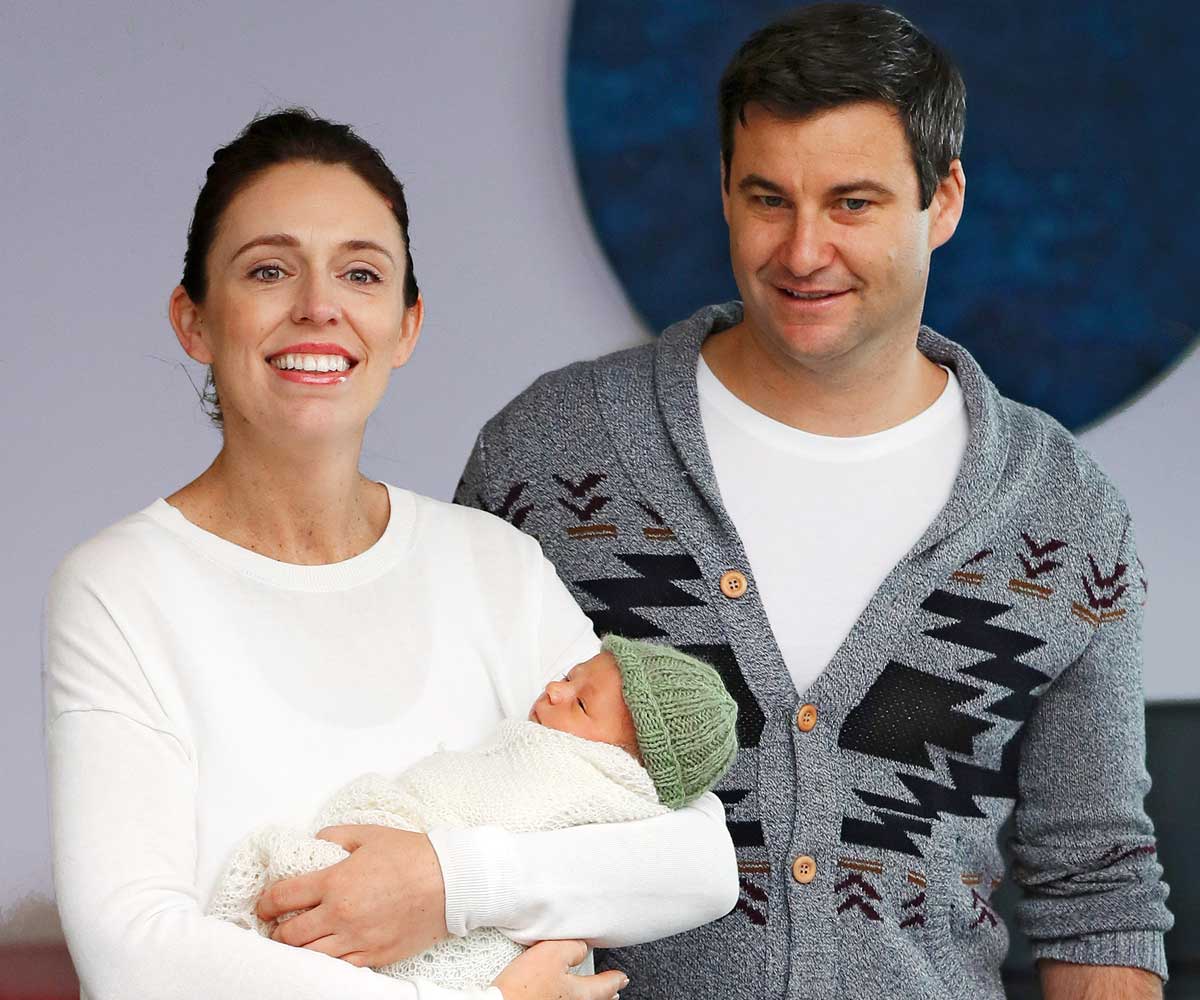

.jpg)